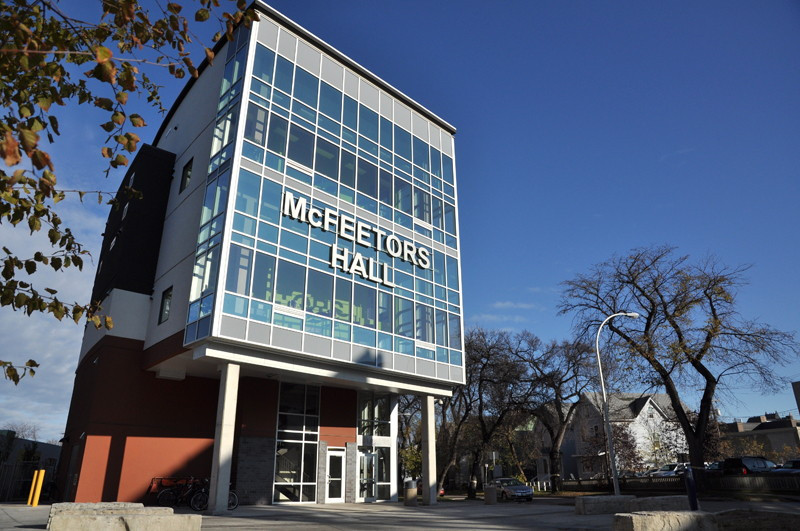Campus living not exactly home away from home
Tough rules and frequent fines make the U of W’s student housing a hostile place to live, students say
The University of Winnipeg’s Community Renewal Corporation-run student residences are facing severe criticism for stringent rules, frequent fining of students and unfair eviction policies.
Nils Deppe, a former resident assistant, said there is no mutual ground between students and housing management.
“It’s very much hostile in the sense that if somebody says you said something, you must have said it,” said Deppe.
According to the Campus Living Handbook, which is available on the Campus Living website, offences are divided into three categories.
Level one offences, such as putting up unapproved posters, warrant punishments including warnings or fines of up to $50.
Level two offences, including disrespecting staff or having unauthorized parties (a party is defined as a gathering of four or more people who do not live in the residence) can include punishments of fines of up to $100, community service and eviction.
Level three offences can warrant fines of over $100, eviction and persecution under the law.
Students who cannot or will not pay their fines are not allowed to take out library books, register for classes or graduate.
Deppe said the strict rules and fines create more problems than they solve, causing undue stress and worry that prevents many students from enjoying their years in residence.
“It’s a lot about making money and screwing students over,” said Deppe. “It’s run like a business, not like a student residence.”
Although there have been protests against unfair treatment, Deppe said most students are afraid to speak up.
“It’s tough for students to get involved because (management) will find something to fine you for,” said Deppe. “They’ll find something to do to you if you do something to them.”
The University of Winnipeg Students’ Association is working towards getting student residences covered by the Manitoba Residential Tenancies Act.
Rebecca Bock-Freeman, director of student living, said the housing office is not following RTA guidelines.
Bock-Freeman said that in many cases, fines and eviction notices have been issued without proof that an infraction has occurred.
“Students are receiving fines with no documentation. They don’t know what the fines are for - they’re getting fines without having been spoken to by management before. Students are overwhelmingly displeased,” said Bock-Freeman.
If student residences were covered under the RTA, there would be a formal body of appeal for students, Bock-Freeman said. Currently, students can seek help with appeals from the UWSA, but these appeals are still handled by the university itself.
Tyler Blashko, vice-president of the UWSA, said in the past six months, at least three students have come to him for help in appealing eviction notices.
“I find there isn’t a clear line between the university and the UWCRC, which leads to some concerns involving accountability and transparency,” said Blashko.
Blashko encourages students to familiarize themselves with policies and advocacy services before issues arise, and to come to the UWSA for help if they are experiencing unfair treatment from the housing offices.
“There definitely needs to be some type of legislation protecting students,” said Blashko. “We haven’t seen the movement we would like to see to protect students living in residence.”
Jeremy Read, senior executive officer and advisor to the president of the university, says the university works to ensure that RTA guidelines are followed.
Read said he is sure proper documentation procedures are being followed when it comes to fining and evicting students. According to Read, if students feel the fines are a form of punishment for speaking out, they should go to the campus harassment officer.
Read said the university does not fine students as a way to generate income, and that he doubts the fining is as wide spread as it has been made out to be.
“You’d have to do a lot of fines to make that profitable. I think that it’s a bit tenuous as an argument,” said Read.
The number of fines issued to students by the housing office was not available by press time.
Published in Volume 66, Number 10 of The Uniter (November 2, 2011)







